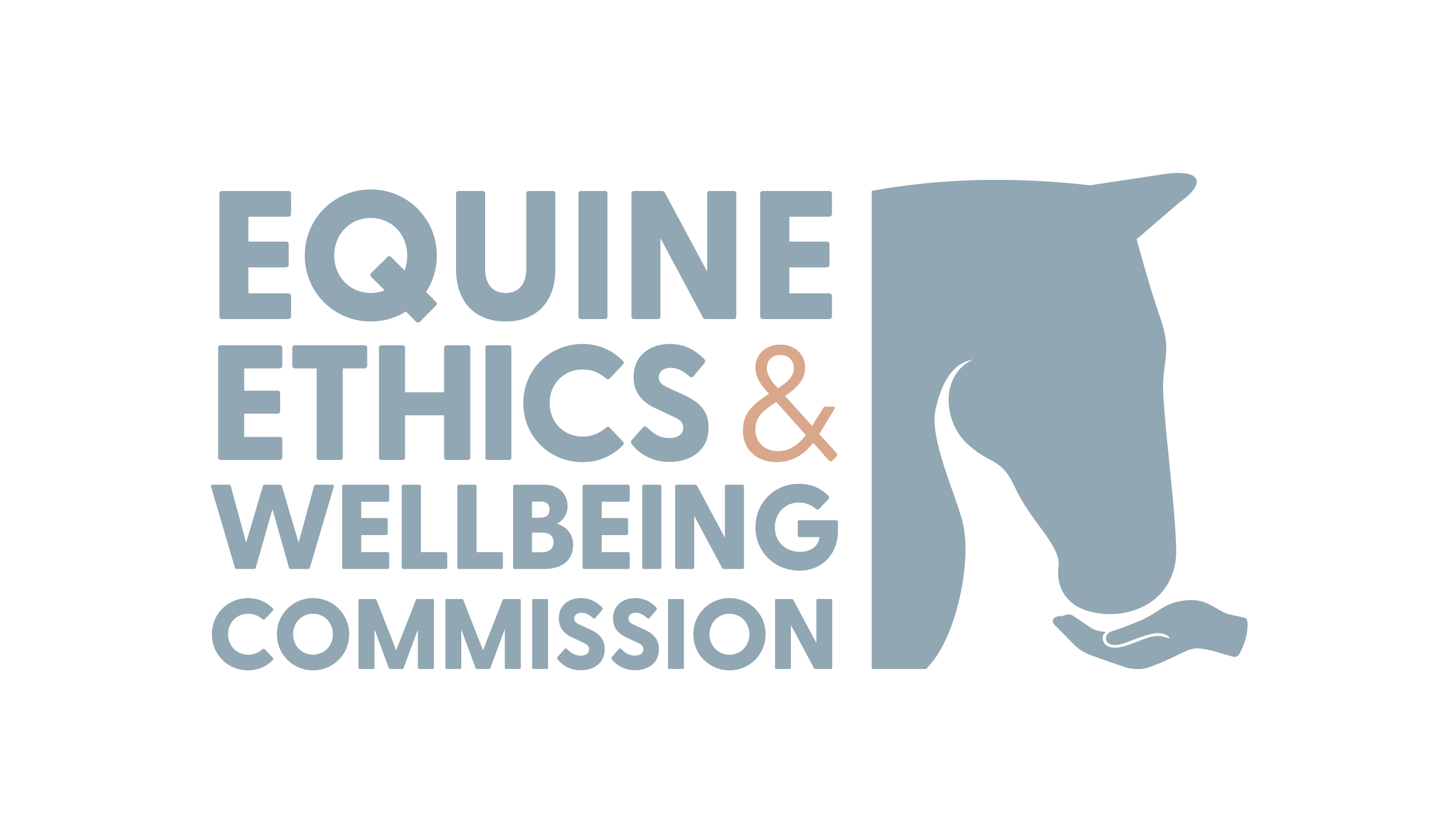The FEI believes that all who are involved with horses should be aware of the responsibility they have for horse welfare, as well as the impact that equestrian activities and horses have on the environment.
In June 2022, in response to growing public concern over global challenges such as climate change, resource use and animal welfare, the FEI instigated a new independent ‘Social Licence’ Commission to address societal concerns related to the use of horses in sport.
The Commission was tasked with addressing societal concerns about the use of horses in sport and creating a blueprint to future-proof equestrian sports, as well as providing independent advice and recommendations to the FEI to ensure equine welfare is safeguarded through ethical, evidence-based policy and practices.
“Equestrian sport and the FEI’s activities are more than ever under public scrutiny and through the Commission we want to embrace that scrutiny to drive change and shine the spotlight on our number one stakeholder – the horse."
“There are comprehensive systems and mechanisms in place to protect the welfare of the horse, but there is more that can be done, and more that must be done. And in an ever-changing society, where perceptions shift and norms evolve at an increasingly fast pace, the FEI must address these concerns and criticisms from society and within equestrian circles in a clear and transparent manner."
“This is our duty as the governing body, and this is why we have set up this important and independent Commission to allow us to move forward with a course of action that will strengthen equestrian’s place in society.”
FEI President Ingmar De Vos (BEL)
Who were the Commission members?
The 10-person Commission was chaired by Professor Dr. Natalie Waran (NZL), an internationally respected equine behaviour and welfare expert, and Professor of One Welfare and Executive Dean at the Eastern Institute of Technology (Te Pūkenga) in New Zealand.
There were five members of the Commission who were external to the FEI, and five FEI nominated representatives.
Following consultation with, and recommendations by respected equine welfare and veterinary organisations, invited external members were selected for their expertise in equine welfare, equitation science, ethics, education and public affairs.
The FEI nominated members werechosen for their considerable experience in their area of FEI responsibility, and to provide the athlete and official viewpoint.
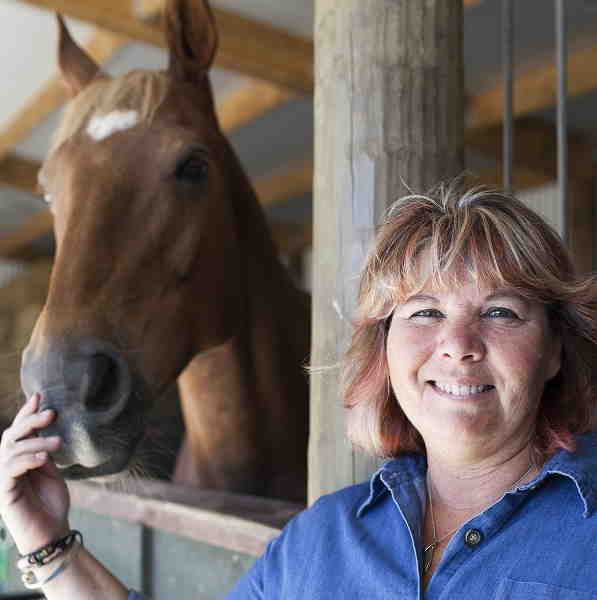
Professor Dr. Natalie (Nat) Waran
External Expert & Chair of the Equine Ethics & Wellbeing CommissionNatalie Waran is an internationally recognised animal behaviour and welfare scientist currently based in New Zealand. She gained a first class Zoology (...)
Read MoreProfessor Dr. Natalie (Nat) Waran
BSc (Hons), PhD (Cantab)
External Expert & Member of the Equine Ethics & Wellbeing Commission

Natalie Waran is an internationally recognised animal behaviour and welfare scientist currently based in New Zealand. She gained a first class Zoology degree from Glasgow University, and her PhD from Cambridge University’s Veterinary School funded by the British Veterinary Association’s Animal Welfare Foundation. A Professor of Animal Welfare since 2005, she was the Head of School and Associate Dean (Research) at Unitec Institute of Technology in Auckland (NZL), following which she was appointed Chair and inaugural Director of the Jeanne Marchig International Centre for Animal Welfare Education at Edinburgh University’s Royal (Dick) School of Veterinary Studies.
While in Edinburgh, she developed and used a ‘one welfare’ approach for advancing animal welfare in developing countries. In 2016 she returned to New Zealand where she is now Professor of One Welfare at the Eastern Institute of Technology (Te Pūkenga) and Executive Dean. Although she has worked on a range of species and welfare concerns, she has a special interest in horse behaviour and welfare, having published and spoken about equine welfare related topics over the past 25 years.
Natalie is a co-founder of the field of equitation science at the International Society for Equitation Science and is an Honorary Fellow and Trustee of the society. In New Zealand, she is currently Chair of the organisation responsible for the National Animal Register Companion Animals, Chair of the National Animal Ethics Advisory Committee (NAEAC), as well as a member of the National Animal Welfare Advisory Committee (NAWAC). She holds Honorary Professorships at the Universities of Edinburgh, Nottingham Trent and Hartpury.

Professor Dr. Kathalijne Visser
External Expert & Member of the Equine Ethics & Wellbeing CommissionKathalijne Visser was appointed Professor (UAS) of Human-Animal Interactions at the Aeres University of Applied Sciences in Dronten (NED) in 2020. She (...)
Read MoreProfessor Dr. Kathalijne Visser
Msc (Hons), PhD
External Expert & Member of the Equine Ethics & Wellbeing Commission

Kathalijne Visser was appointed Professor (UAS) of Human-Animal Interactions at the Aeres University of Applied Sciences in Dronten (NED) in 2020. She earned her Animal Science degree at the Wageningen University in the Netherlands, defending her well-known PhD thesis, Horsonality: On the personality of horses, in 2002.
Following completion of her PhD, Kathalijne led various research projects on equine welfare looking at housing, feeding and training practices, and in 2012 she developed the Dutch welfare monitoring system for horses, based on the Welfare Quality System.
From 2007 to 2012 she was a council member of the International Society for Equitation Science (ISES). As Professor of Human-Animal Interactions, she studies the effect of these interactions on the welfare of dogs and horses in work, therapy, sports and recreation.
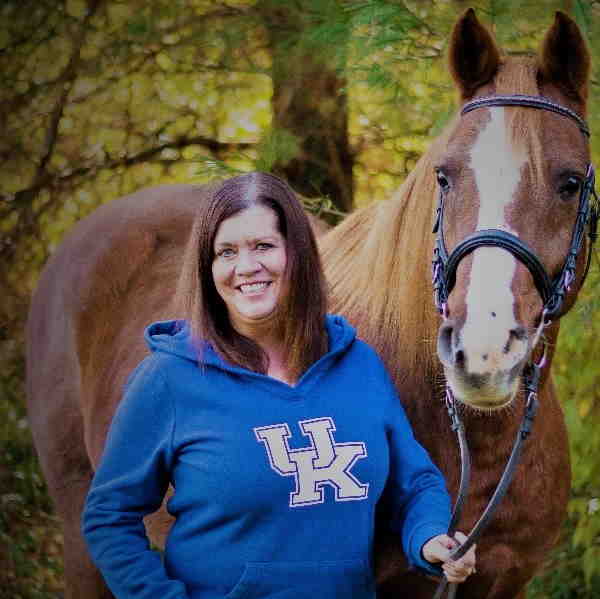
Dr. Camie Heleski
External Expert & Member of the Equine Ethics & Wellbeing CommissionCamie Heleski received her PhD in Animal Science with a specialisation in equine behaviour and welfare, and an MSc in Animal Science (...)
Read MoreDr. Camie Heleski
External Expert & Member of the Equine Ethics & Wellbeing Commission

Camie Heleski received her PhD in Animal Science with a specialisation in equine behaviour and welfare, and an MSc in Animal Science in equine nutrition and exercise physiology from Michigan State University. She worked at Michigan State University for 25 years as Coordinator of their Horse Management programme, during which time she also coached the collegiate horse judging team for 16 years and the introductory dressage team for six seasons.
Since 2016, Camie has lectured on equine industry issues at the University of Kentucky’s Equine Science and Management programme where she co-teaches the Equine Senior Capstone course, and leads the multi-species Animal Behaviour & Welfare class. Her applied research interests focus on equine behaviour and welfare, horse-human interactions, sport horse welfare issues and working equids in developing regions of the world.
Camie has been actively involved with the International Society for Equitation Science as a Council member and Honorary Fellow. One of her recent publications was a co-authored piece in the journal of Sustainability: Thoroughbred Racehorse Welfare through the Lens of ‘Social License to Operate—With an Emphasis on a U.S. Perspective. This article led to multiple invited speaking opportunities, both in the USA and abroad. Camie was fortunate to grow up on an Arabian horse farm where she helped her family with training, showing, breeding and managing horses. She helped establish the annual Animal Welfare Judging & Assessment competition as part of her PhD dissertation, which led to her receiving the AVMA Humane Award for Non-Veterinarians in 2012.

Professor Madeleine Campbell
External Expert & Member of the Equine Ethics & Wellbeing CommissionMadeleine Campbell is a Veterinary Surgeon, an EBVS® Veterinary Specialist and a RCVS Recognised Specialist in Animal Welfare Science (...)
Read MoreProfessor Madeleine Campbell
BVetMed (Hons), MA (Oxon), MA (Keele), PGCert (Vet Ed), PhD DipECAR, DipECAWBM (AWSEL), FHEA, FRCVS
External Expert & Member of the Equine Ethics & Wellbeing Commission

Madeleine Campbell is a Veterinary Surgeon, an EBVS® Veterinary Specialist and a RCVS Recognised Specialist in Animal Welfare Science, Ethics and Law based in the United Kingdom. She was the first veterinary surgeon to be awarded a Wellcome Trust Post-Doctoral Fellowship in Bioethics, which she used to investigate ethical issues surrounding the use of reproductive technologies in non-human mammals.
Madeleine is Professor of Veterinary Ethics at Nottingham University School of Veterinary Medicine and Science, and runs her own consultancy, Empathy Veterinary Ethics. She Chairs the British Veterinary Association’s Ethics and Welfare Advisory Panel and sits on the Ethics Review Panels for the Royal College of Veterinary Surgeons and the Zoological Society of London among others.
Madeleine’s main focus of current research is on the ethics surrounding the use of animals in competitive sport. In 2020/21, Madeleine developed and published the Ethical Framework for the Use of Horses in Sport Animals and then in 2021/22, she led the development and publication of the Greyhound Board of Great Britain’s new Welfare Strategy. In 2021, Madeleine was appointed Fellow of the Royal College of Veterinary Surgeons in recognition of her outstanding contributions to the field of Veterinary Ethics.
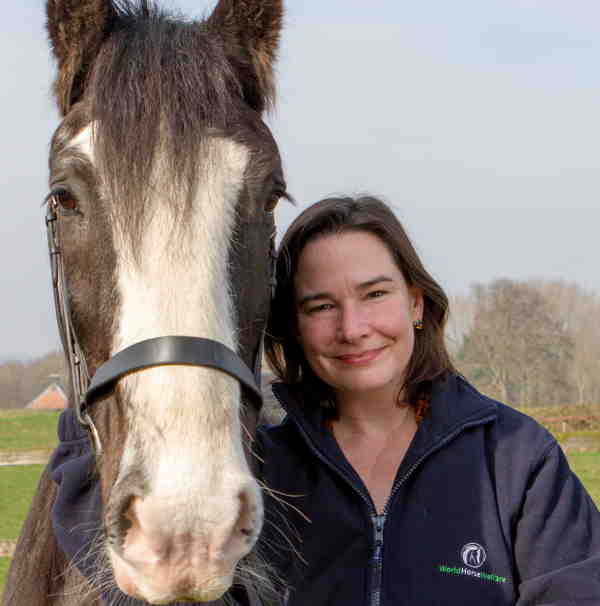
Jessica Stark
Member of the Equine Ethics & Wellbeing CommissionJessica Stark is the Director of Communications and Public Affairs for World Horse Welfare. In this position she leads the team responsible (...)
Read MoreJessica Stark
Member of the Equine Ethics & Wellbeing Commission

Jessica Stark is the Director of Communications and Public Affairs for World Horse Welfare. In this position she leads the team responsible for the charity’s communications strategy, brand, media relations, stakeholder engagement, policy influence and digital media, as well as educational and research initiatives. Since joining the charity in 2010, Jessica has been closely involved in World Horse Welfare’s work to promote the ethical and responsible involvement of horses in sport.
She has more than 25 years of international communications and campaigns experience gained in New York and London in the private, public and non-for-profit sectors including roles with The Economist Group, Pearson plc and Britain’s senior public servants’ union, the FDA. Jessica is passionate about improving equine welfare within the horse-human relationship and conveying the mutual benefits of this relationship.
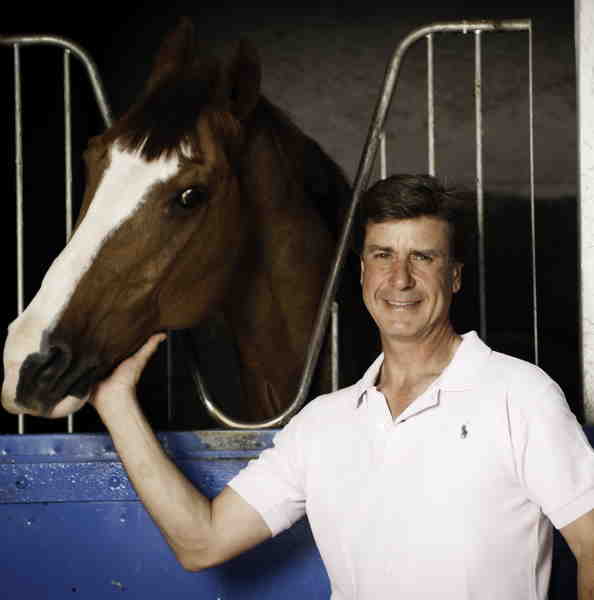
Cayetano Martínez de Irujo
Member of the Equine Ethics & Wellbeing CommissionCayetano Martínez de Irujo, an international jumping athlete from Spain, was the President of the International Jumping Riders Club (...)
Read MoreCayetano Martínez de Irujo
Member of the Equine Ethics & Wellbeing Commission

Cayetano Martínez de Irujo, an international jumping athlete from Spain, was the President of the International Jumping Riders Club (IJRC) from 1999 to 2007 and then again from 2011 to 2013. He joined the Spanish National Youth Team in 1979 and has been part of the National Senior Team since 1986.
Having lived and trained in France, the Netherlands and Germany, Cayetano’s career includes 32 FEI Nations Cup™ participations, victories in numerous national and international Grand Prix competitions and a long list of classifications at the most prestigious international jumping events. One of his most memorable career highlights remains his participation at the Olympic Games in Barcelona 1992, where he ranked fourth with the Spanish team.
From 2008 to 2009, Cayetano was President of the United Equestrian Athletes Association (UEAA) and was a member of the FEI Athletes Committee from 2007 to 2009. Cayetano was awarded Spain’s Grand Cross of Humanitarian Merit in 2016 and the Gold Medal of the Royal Academy of Medicine in 2020. This year at the CHIO Aachen he was awarded the Golden Badge by the FEI for his contribution to equestrian sport over the years.
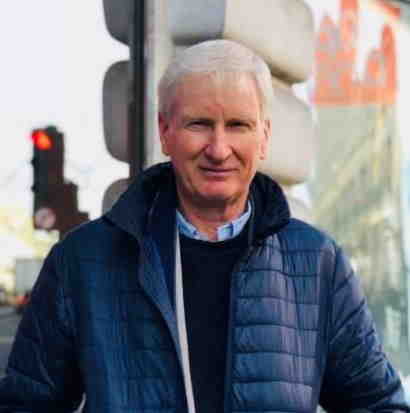
Ken Lalo
Member of the Equine Ethics & Wellbeing CommissionAn Arbitrator at the Court of Arbitration of Sport (CAS) since 2011, Ken Lalo is currently in his sixth term as President of the Israel Equestrian (...)
Read MoreKen Lalo
Member of the Equine Ethics & Wellbeing Commission

An Arbitrator at the Court of Arbitration of Sport (CAS) since 2011, Ken Lalo is currently in his sixth term as President of the Israel Equestrian Federation.
Ken was Chair of the FEI Tribunal from 1999 to 2011 and a member of the FEI Judicial Committee from 1996 to 1999. Now an Honorary FEI Board member, Ken held the position from 1999 to 2007 and he also sat on the FEI Clean Sport Committee from 2009 to 2010. He was appointed Chair of the FEI Atypical Findings Panel in 2021, and has held the position of Chairman and member of the Appeal Committees for equestrian disciplines at the Olympic Games, World and other major Championships.
A horse rider and equestrian enthusiast, Ken earned his LLB at Tel-Aviv University and a Masters in Comparative Law at George Washington University. He studied International Law at Georgetown University and earned an MBA at Northwestern University/ Tel-Aviv University. Ken also holds the position of Vice-Chair of the Supervisory Council of the Aquatics Integrity Unit at the Fédération Internationale de Natation (FINA).
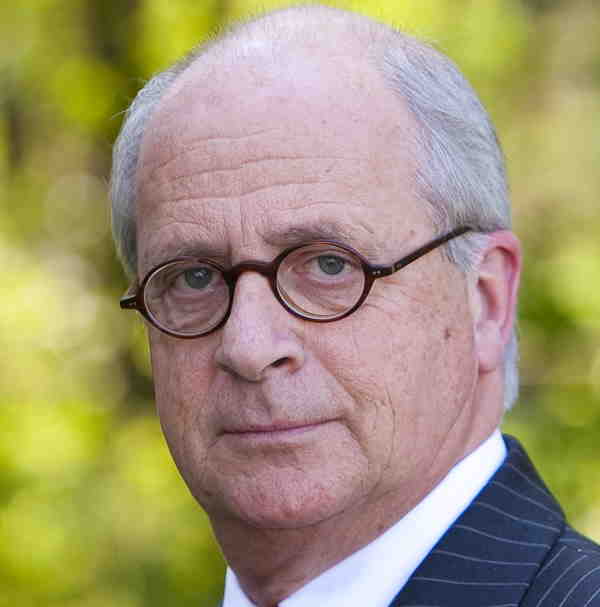
Theo Ploegmakers
Member of the Equine Ethics & Wellbeing CommissionTheo Ploegmakers is the current European Equestrian Federation (EEF) President and an FEI Board Member. He was the Vice President (...)
Read MoreTheo Ploegmakers
Member of the Equine Ethics & Wellbeing Commission

Theo Ploegmakers is the current European Equestrian Federation (EEF) President and an FEI Board Member. He was the Vice President of the CSI/CDI Hertogenbosch from 2001 to 2011 and was a Board Member for the Royal Dutch Equestrian Federation (KNHS) from 2009 to 2011 where he was responsible for High-Performance Sport. Prior to being elected EEF President, Theo was the President of the KNHS from 2011 to 2018.
In 2022, Theo launched a sustainability working group through the EEF to identify the areas of concern, and action points to improve the carbon footprint of the sport.
While equestrian has always been a key part of Theo’s life, he started his career in Engineering at Shell Tankers. With qualifications in Mechanical Engineering and Nautical Engineering, Theo spent many years working internationally, managing operations in a number of territories including the Middle East and Asia. Theo took on additional studies including the Advanced Executive Programme from UCLA and the Advanced Financials Programme for Executives at the University of Singapore.

Cesar Hirsch
Member of the Equine Ethics & Wellbeing CommissionCesar Hirsch is currently President of the Pan-American Equestrian Confederation (PAEC). Born in Caracas (VEN), Cesar graduated with a Bachelor’s degree (...)
Read MoreCesar Hirsch
Member of the Equine Ethics & Wellbeing Commission

Cesar Hirsch is currently President of the Pan-American Equestrian Confederation (PAEC). Born in Caracas (VEN), Cesar graduated with a Bachelor’s degree in International Business in Venezuela which he followed with a post-graduate degree from Northeastern University in Boston, Massachusetts (USA) in 1994.
Cesar’s passion for horses and interest in equestrian sport led him to compete internationally for ten years beginning in 1979. He then went on to become an FEI level 4 Judge and Level 4 Steward, FEI Course Director and Steward General for Venezuela. He has worked at a number of international events including the Olympic Games in Rio 2016, two FEI World Equestrian Games™, three FEI World Cup™ Finals, six Pan-American Games, six Central American and Caribbean Games, four Bolivarian Games and Central American Games, five South and North American Championships, as well as a multitude of CSIO 5* and CSI 5* events. He was also a Consultant and Discipline Manager for Jumping at the Olympic Games in Tokyo 2020.
The Deputy Chairman and Group V Representative of the FEI Nominations Committee from 2013 to 2017, Cesar is also an Official Technical Ambassador of Just World International and is a Board Member for the Caribbean Equine Relief Fund.
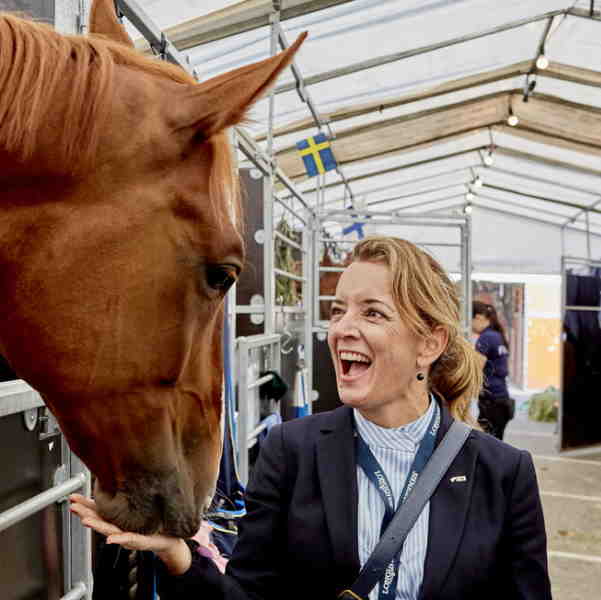
Sabrina Ibáñez
Member of the Equine Ethics & Wellbeing CommissionSabrina Ibáñez was appointed FEI Secretary General in January 2015. She was elected President of the Association of Paralympic Sport Organisations (APSO) in September (...)
Read MoreSabrina Ibáñez
Member of the Equine Ethics & Wellbeing Commission

Sabrina Ibáñez was appointed FEI Secretary General in January 2015. She was elected President of the Association of Paralympic Sport Organisations (APSO) in September 2017. She is also Chair of the Association of Summer Olympic International Federations (ASOIF) Diversity & Gender Equality Consultative Group, and a member of the IOC Gender Equality Working Group. She was also on the International Paralympic Committee (IPC) Governance Review Group until 2021.
Sabrina holds a bachelor’s degree in Science in Communications and History from Boston University and a diploma in Sociology, Politics and Management of Sport Science from the Universities of Lausanne, Leicester, and Montpellier.
Having worked with the FEI since 1991, Sabrina has previously held the positions of FEI Director, Governance and Executive Affairs; Human Resources, Finance & Administration coordinator; Sports Administrator; and Manager of the Secretary General’s office. Prior to working for the FEI, Sabrina Ibáñez was with Telecom Japan TV Productions in New York (USA) and the Fédération Internationale de Natation (FINA) in Lausanne (SUI).
What were the aims of the Commission?
The purpose of the Commission’s work was to address issues of public and equestrian concern and develop an evidence based ‘Framework’ to guide FEI regulations, policies and practices, as well as to enable effective advocacy and influence relating to the ethics and wellbeing of horses used in sport.
In line with the Commission’s terms of reference, at the FEI Hybrid General Assembly 2023 in Mexico City (18 to 21 November), the Equine Ethics and Wellbeing (EEWB) Commission submitted their final report – A Good Life for Horses – to the FEI Board. The Report, which points out six areas of focus identified as being of importance to equestrian stakeholders, and includes 30 recommendations developed by the Commission with the use of available scientific literature, extensive public and equestrian survey information and stakeholder feedback, is now being considered and will form part of the discussion and proposed way forward to be presented at the 2024 FEI Sports Forum in Lausanne.
The recommendations include:
- Develop and implement of a vision statement for ‘A Good Life For Horses’ to influence transformative change in relation to strengthening social licence
- Develop and implement a robust FEI internal decision-making process to ensure that equine welfare and ethics are genuinely prioritised in the development of FEI policy and in practice.
- Establish a permanent FEI Equine Ethics and Wellbeing Independent Advisory Committee to act as a ‘critical friend’ and provide an external perspective and independent advice related to the welfare of horses in sport.
- Create a permanent internal FEI Equine Ethics and Wellbeing body to advocate specifically for the welfare interests of horses in sport.
- Adopt an evidence-based approach for assessing the impact on horse welfare of new and existing items of tack and equipment in training and competition
Implement additional checks by trained professionals and officials to ensure horses are always ‘Fit to Compete’ by investing in more extensive and stricter health and welfare monitoring pre and post competition to prevent horses entering the competition arena if experiencing pain and/or stress. “The direct and indirect influence through the leadership provided by the FEI, FEI events, equestrians and associated organisations will go a long way to ensuring that the welfare of horses involved in sport is safeguarded, risks to welfare are addressed and mitigated, and the horse’s welfare interests are prioritised at all times.
“We hope that these recommendations will support ongoing social licence to operate through proactively addressing any equine welfare concerns and promoting evidence-based changes where needed to ensure the welfare of sport horses throughout their lives.”
EEWB Chairperson Professor Dr. Natalie Waran (NZL)
What was the Commission’s work approach?
The Commission met for the first time at the start of June 2022, and went on to meet twice a month through online meetings. A two-day ‘in person’ meeting was scheduled in Lausanne (SUI) in August 2022.
Equestrian and public surveys were run in different parts of the world and have been translated into a number of languages. Focus groups were also used to inform the work of the Commission.
Refer to Key Documents for the results to these surveys and pulse groups.
In addition, the Commission consulted with external specialist groups for the latest research, and considered evidence from associated social licence areas as well as information from industry bodies.
Timeline
The work of the Commission which spanned an 18-month period, was divided into three stages:
Stage 1 (June to November 2022)
A first interim report will be presented by the Chair at the FEI General Assembly in Cape Town (RSA) from 9 to 13 November 2022
Stage 2 (December 2022 to April 2023)
A second draft report will be presented during the FEI Sports Forum in 2023.
Stage 3 (May to November 2023)
A final report will be presented by the Chair to the FEI General Assembly in Mexico.
Contact
As the Equine Ethics & Wellbeing Commission have completed their 18-month mandate (June 2022 - November 2023) and delivered their final report to the FEI Board – A Good Life for Horses - please contact the FEI should you have any further questions about the work of the Commission, next steps for the FEI and how their work is being carried forward.
